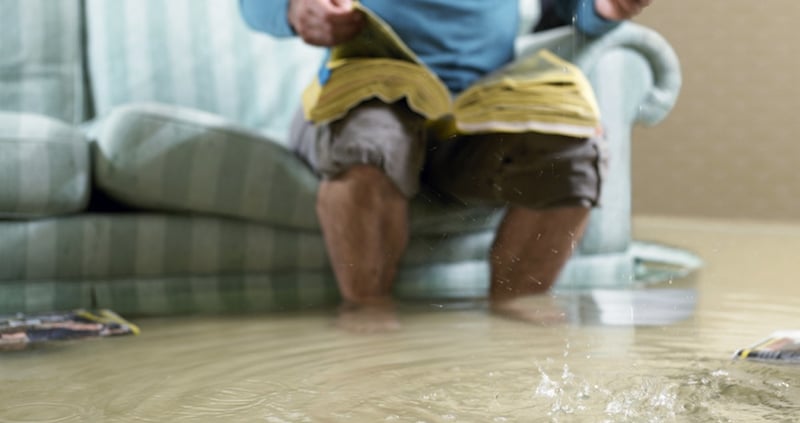
As we all know, plumbing emergencies can strike suddenly, sometimes at the worst possible times—like when we’re home alone or during a big holiday party. Having some background knowledge on what to do if water starts spewing from a pipe or fixture could potentially save you a lot of money and heartache. If you don’t stop a water problem as soon as possible, a lot of damage can be done to your home.
The best advice we can give you to “prepare” for a plumbing emergency is to know what to do immediately if you experience one. Prepare yourself and your family members by following these instructions.
1. Know where your main water shutoff valve is located.
Locate your home’s main water shutoff valve. If water starts spilling over or spraying out of something, your first instinct should be to quickly turn off the main water supply. The sooner you act, the less water will flood your home.
2. Know how to turn off individual fixture shutoff valves.

Also know how to turn off the water supply to your individual appliances, like the toilet, washing machine, and dishwasher. If your toilet starts overflowing, for example, you will need to act quickly and shut off its water supply before gallons of water are able to seep into your floors and cause serious damage.
Do your research to determine how to turn off the water supply to each appliance. For the toilet, keep in mind that the tank shutoff valve supplies water to the tank when it's open; the tank then supplies water to the bowl. You may have to shut off the tank supply by turning the valve (behind your toilet, near the wall) and plug the drain in the bottom of the tank to keep any water left in it from flowing into the bowl and overflowing onto your floor.
3. Leave your plumber’s number in plain site.
It’s a good idea to do some research to find a reputable emergency plumber in your area so you’re prepared ahead of time. This way, you’ll be able to look around and find a company with fair rates that provides quality service. Write the phone number down on paper and stick it to the fridge so everyone in the house can see it. Also save the plumber’s number in your phone for easy access.
4. Get your “toolkit” ready.
Pulling together a few items you can grab in case of an emergency will allow you to act quickly and save more of your home and belongings. Have some buckets, rags, and leak-sealing tape on hand, at the very minimum. If you’re more handy, you could add other items to this emergency toolkit, such as a wrench, pliers, a hand auger (plumber's snake), and whatever else you see fit.
5. Keep extra drinking water on hand.
If you end up having to turn off your main water supply, and it will be several hours before it will be turned back on, you may want some extra water available for drinking and cooking. Store your water in a cool area without sunlight so it stays safe. Ensure the containers you use are safe and that you replace them as necessary. If you buy plastic water bottles to store, check their expiration dates; the plastic will eventually leach chemicals into the water.
If you're searching for reputable plumbing contractors in Aspen, CO, consider Pacific. Our master plumbers are fully licensed, bonded, and ensured and available around the clock. Give us a call or contact us online by clicking below. We proudly serve homes and businesses throughout the Roaring Fork Valley.
